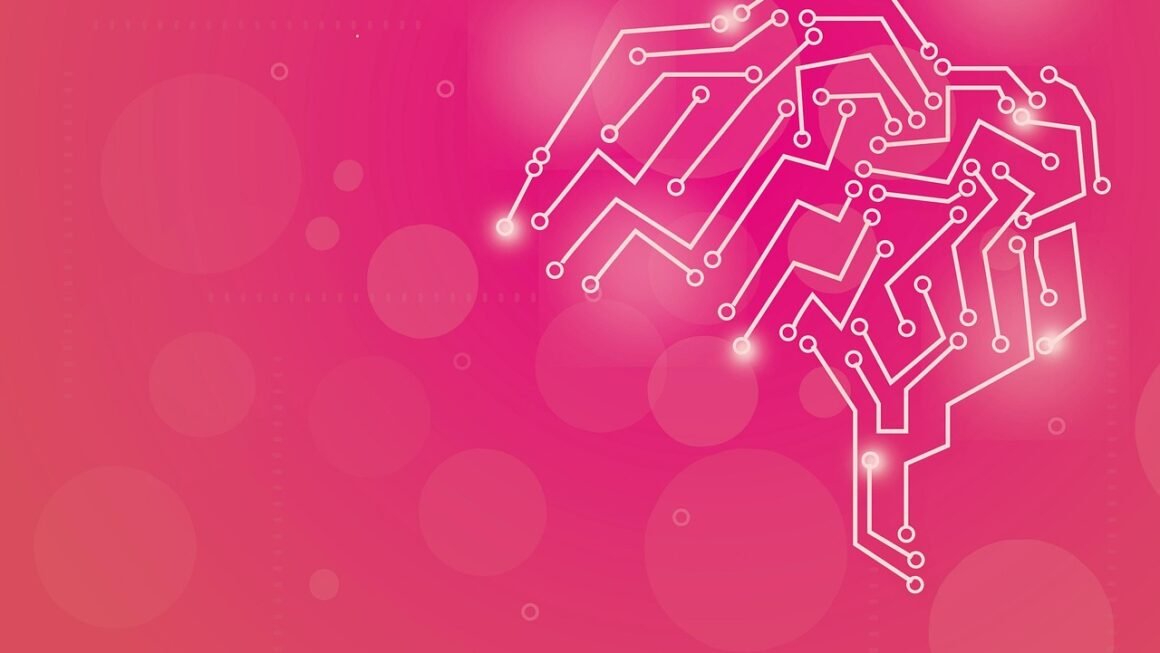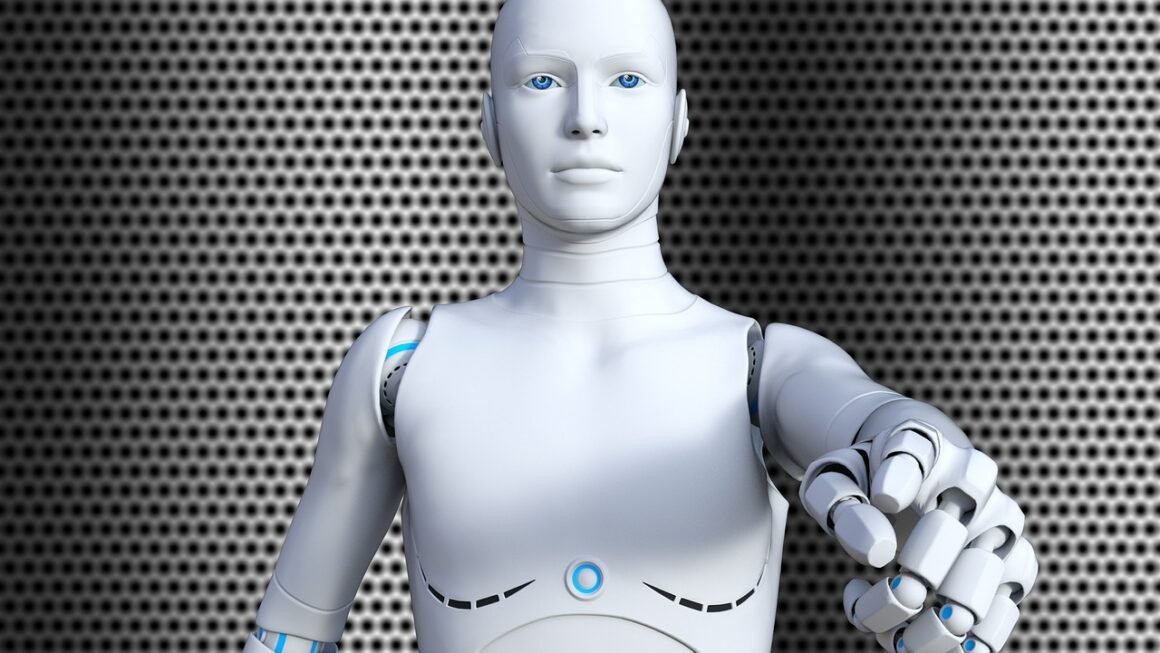Artificial intelligence (AI) is rapidly transforming the healthcare landscape, offering unprecedented opportunities to improve patient care, streamline operations, and accelerate medical research. From diagnosing diseases with greater accuracy to personalizing treatment plans and automating administrative tasks, AI is poised to revolutionize how healthcare is delivered and experienced. This article delves into the diverse applications of AI in healthcare, exploring its benefits, challenges, and future potential.
AI-Powered Diagnostics and Imaging
Enhancing Accuracy and Speed
AI algorithms are proving to be exceptionally adept at analyzing medical images, such as X-rays, MRIs, and CT scans, to detect anomalies and diagnose diseases. These algorithms can often identify subtle patterns that might be missed by the human eye, leading to earlier and more accurate diagnoses.
- Example: AI systems are being used to detect early signs of lung cancer in CT scans, significantly improving patient survival rates through timely intervention. Studies have shown that AI can reduce false positives in mammography screenings, minimizing unnecessary biopsies.
- Benefit: Reduced diagnostic errors and faster turnaround times translate to better patient outcomes and lower healthcare costs.
Advancements in Pathology
AI is also making strides in pathology, where it can analyze tissue samples and identify cancerous cells with remarkable precision. This technology can assist pathologists in making more accurate diagnoses and developing personalized treatment plans.
- Example: AI-powered pathology systems can analyze microscopic images of tissue samples to identify specific types of cancer cells, predict disease progression, and determine the best course of treatment.
- Benefit: Streamlined workflow for pathologists, reduced subjectivity in diagnosis, and improved accuracy in cancer staging.
Actionable Takeaway:
Healthcare providers should explore AI-powered diagnostic tools to enhance their diagnostic capabilities and improve patient care. Integrating these technologies can lead to earlier and more accurate diagnoses, ultimately saving lives.
Personalized Treatment Plans
Tailoring Treatment to Individual Needs
AI can analyze vast amounts of patient data, including medical history, genetic information, and lifestyle factors, to create personalized treatment plans that are tailored to the individual’s specific needs. This approach, known as precision medicine, has the potential to significantly improve treatment outcomes and reduce side effects.
- Example: AI algorithms can predict a patient’s response to different medications based on their genetic makeup, allowing doctors to prescribe the most effective treatment with minimal adverse effects.
- Benefit: Improved treatment efficacy, reduced side effects, and enhanced patient satisfaction.
Drug Discovery and Development
AI is accelerating the drug discovery process by identifying potential drug candidates, predicting their efficacy, and optimizing their design. This can significantly reduce the time and cost associated with bringing new drugs to market.
- Example: AI algorithms can analyze vast databases of chemical compounds and biological data to identify potential drug candidates for various diseases, including cancer, Alzheimer’s, and infectious diseases.
- Benefit: Faster drug discovery, reduced development costs, and increased availability of life-saving medications.
Actionable Takeaway:
Embrace AI-driven precision medicine to develop personalized treatment plans that are tailored to each patient’s unique characteristics. This approach can lead to better treatment outcomes and improved quality of life.
Streamlining Healthcare Operations
Automating Administrative Tasks
AI can automate many of the administrative tasks that consume valuable time and resources in healthcare organizations, such as scheduling appointments, processing insurance claims, and managing patient records. This can free up healthcare professionals to focus on patient care.
- Example: AI-powered chatbots can handle routine patient inquiries, schedule appointments, and provide basic medical information, reducing the workload on administrative staff.
- Benefit: Reduced administrative costs, improved efficiency, and enhanced patient satisfaction.
Predicting Patient Needs
AI can analyze patient data to predict future healthcare needs, such as the likelihood of hospital readmissions or the onset of chronic diseases. This allows healthcare providers to proactively intervene and prevent costly and potentially life-threatening events.
- Example: AI algorithms can identify patients who are at high risk of hospital readmission based on their medical history, demographics, and social determinants of health, allowing hospitals to provide targeted interventions to prevent readmissions.
- Benefit: Reduced hospital readmissions, improved patient outcomes, and lower healthcare costs.
Actionable Takeaway:
Leverage AI to automate administrative tasks and predict patient needs, optimizing healthcare operations and improving efficiency. This can free up resources and allow healthcare professionals to focus on delivering high-quality patient care.
Remote Patient Monitoring and Telehealth
Enhancing Access to Care
AI-powered remote patient monitoring systems can track patients’ vital signs and other health metrics in real-time, allowing healthcare providers to monitor their condition remotely and intervene when necessary. This is particularly beneficial for patients with chronic conditions who require ongoing monitoring but may not be able to visit a doctor’s office regularly.
- Example: Wearable sensors can track patients’ heart rate, blood pressure, and activity levels, and transmit this data to healthcare providers for remote monitoring. AI algorithms can analyze this data to detect anomalies and alert providers to potential problems.
- Benefit: Improved access to care, reduced hospitalizations, and enhanced patient engagement.
Improving Patient Engagement
AI-powered telehealth platforms can provide patients with personalized health advice, support, and education, helping them to better manage their health and prevent chronic diseases.
- Example: AI-powered chatbots can provide patients with personalized coaching on diet, exercise, and stress management, helping them to adopt healthier lifestyles.
- Benefit: Increased patient engagement, improved health outcomes, and reduced healthcare costs.
Actionable Takeaway:
Implement AI-powered remote patient monitoring and telehealth solutions to enhance access to care, improve patient engagement, and promote proactive health management. This can lead to better health outcomes and reduced healthcare costs.
Ethical Considerations and Challenges
Data Privacy and Security
One of the biggest challenges of using AI in healthcare is ensuring the privacy and security of patient data. Healthcare organizations must implement robust security measures to protect patient data from unauthorized access and misuse.
- Challenge: Protecting sensitive patient information from breaches and ensuring compliance with privacy regulations like HIPAA.
- Mitigation: Implement strong encryption, access controls, and data governance policies.
Algorithmic Bias
AI algorithms can be biased if they are trained on biased data. This can lead to inaccurate or unfair diagnoses and treatment recommendations.
- Challenge: Ensuring that AI algorithms are free from bias and do not perpetuate existing health disparities.
- Mitigation: Use diverse and representative datasets to train AI algorithms, and regularly audit algorithms for bias.
Explainability and Transparency
It is important that AI algorithms are transparent and explainable, so that healthcare providers can understand how they arrive at their conclusions. This can help to build trust in AI and ensure that it is used responsibly.
- Challenge: Understanding how AI algorithms make decisions and ensuring that their recommendations are transparent and explainable.
- Mitigation: Use explainable AI (XAI) techniques to make AI algorithms more transparent and understandable.
Conclusion
AI is transforming healthcare in profound ways, offering unprecedented opportunities to improve patient care, streamline operations, and accelerate medical research. By embracing AI-powered diagnostics, personalized treatment plans, and streamlined operations, healthcare organizations can deliver better care at a lower cost. While ethical considerations and challenges exist, they can be addressed through careful planning, robust security measures, and a commitment to transparency and fairness. As AI continues to evolve, it will undoubtedly play an increasingly important role in shaping the future of healthcare.



